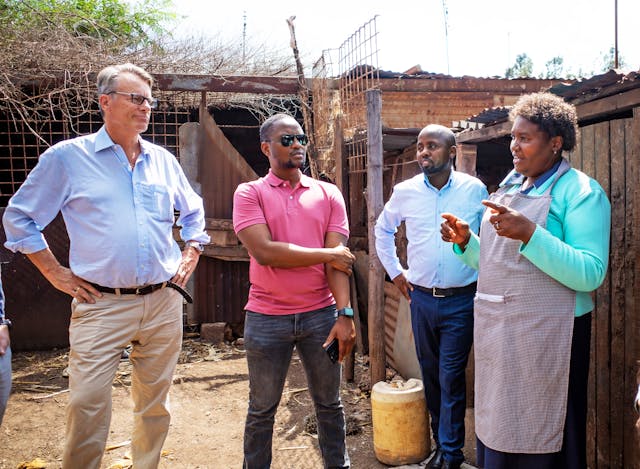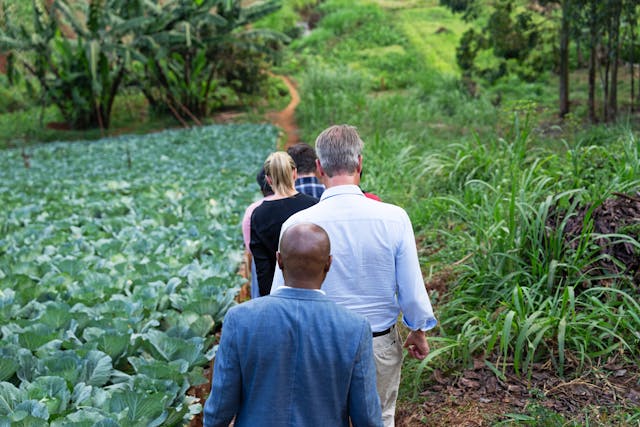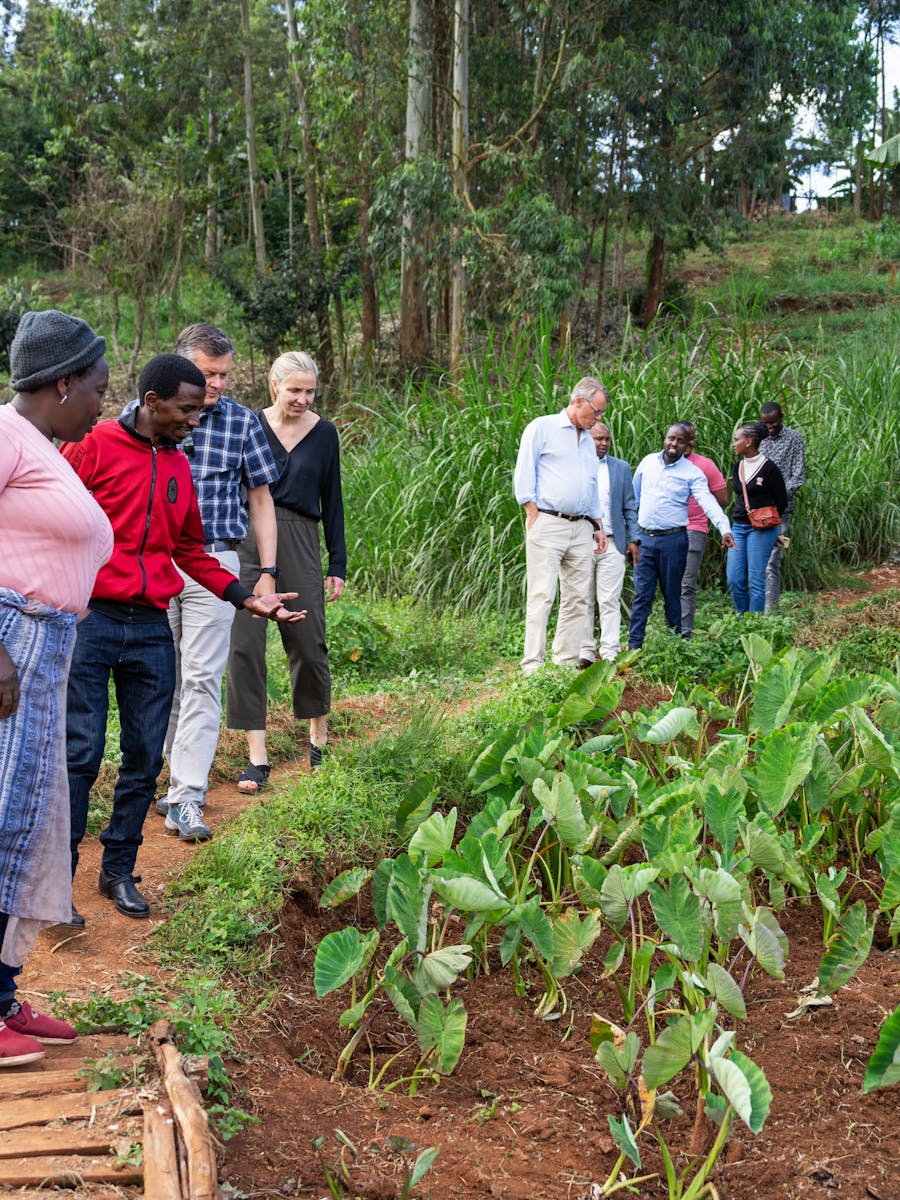
Seizing Opportunities: Co-founder Johan Andresen on creating impact in Kenya
In September, a team from Ferd visited Kenyan farmers who had received loans from institutions invested in by Abler Nordic. The encounters with people who had improved their quality of life and are better prepared for climate change left a lasting impression.
Johan H. Andresen is a board member of Abler Nordic, the organization he initiated in 2008 to bring financial services to people in developing countries who are excluded from traditional banks. Andresen got the idea in 2004 when he first learned about microfinance.
"At that point, I realized that Norway had the resources to make a real difference in this area. I wanted to gather public and private capital to support hardworking and resourceful people who were ready to seize opportunities," he says.
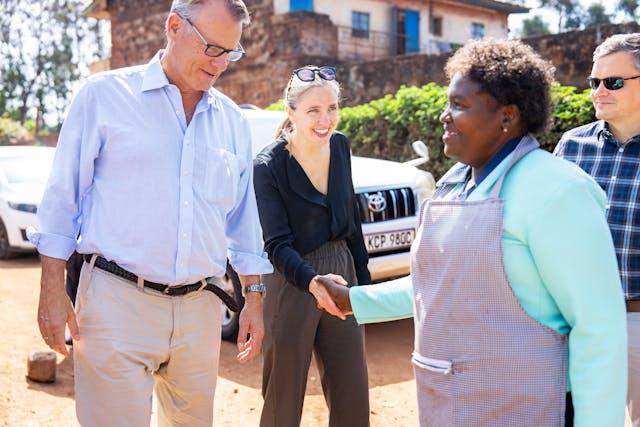
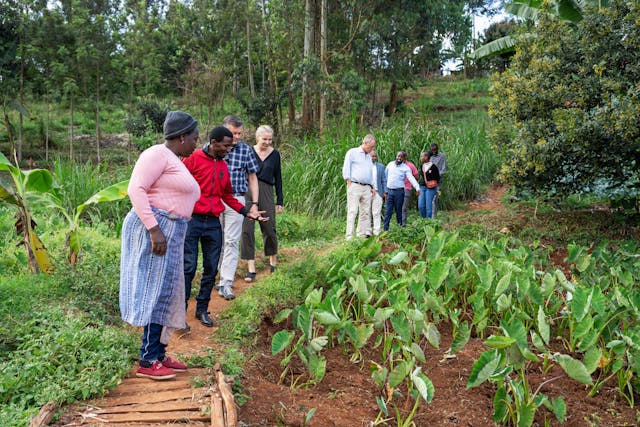
In connection with Ferd's 175th anniversary, all employees were invited on an "adventure" to Kenya. Johan H. Andresen, Head of Risk Allocation Christian Halvorsen, and Head of Sustainability Marte Løfman traveled ahead to meet with borrowers from some of the companies Abler Nordic has invested in. Halvorsen also leads the investment committee for Abler Nordic’s three latest funds. The Ferd team met representatives from the microfinance institutions Juhudi Kilimo and Premier Credit, who invited them to visit some of their borrowers.
"It's something entirely different to go out and meet the end customers compared to reading numbers and reports. It's incredibly inspiring and motivating to see that what we’re working on has such a big impact on people's lives," says Halvorsen.
"Many of the borrowers can’t get loans from traditional banks because they have low creditworthiness or don't have a regular income. Without the offerings from companies like Juhudi Kilimo and Premier Credit, loan sharks would be their only alternative," he concludes.
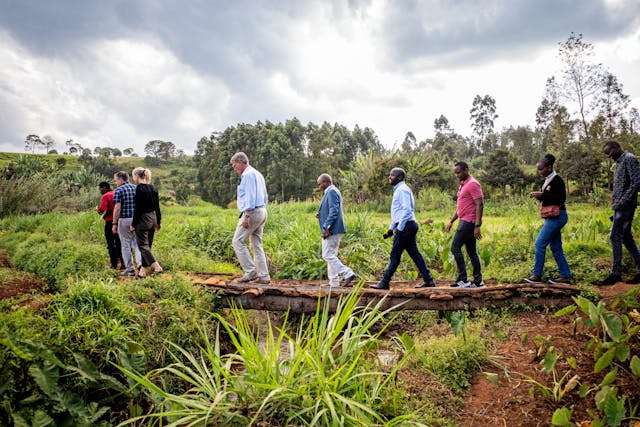
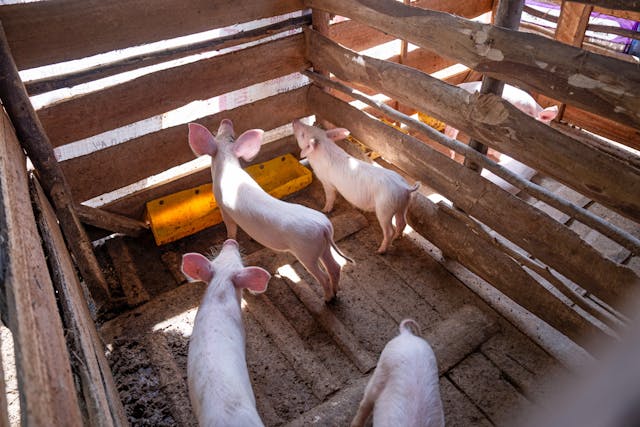
New Projects
80 percent of Kenyans rely on farming for their livelihood, and many farmers in rural areas lack access to banking services.
One of the farms the Ferd team visited belongs to Peter and Mary Ndungu from Limuru. They’ve been farming for as long as they can remember and have faced many challenges, including diseases that affected their livestock. With financing from Premier Credit, they were able to buy sheep and expand their business.
"They didn’t tell me what to do but helped me build on my own vision for the farm. They saw the potential in my plans," says Peter.
Today, the couple has both dairy cows and sheep and also grows vegetables. One key investment has been an electric pump for irrigation.
"It’s much cheaper than the petrol pumps I used to use. We also have ambitions to buy a solar-powered pump through Premier Credit," he says.
The farm has grown to the point where Peter and Mary now employ three people.
"We want to continue growing and try new projects, like selling vegetables online to get higher prices than at the local markets, and exploring new crops," says Peter.
Profitable and Sustainable
In recent years, financial inclusion, in addition to economic support, has increasingly focused on climate resilience.
"Borrowers are increasingly having to adapt to climate change. For example, many can no longer grow the same crops and vegetables as before and are dependent on access to financing during transitional periods. Several of the farmers we met spoke about challenges related to climate change," says Halvorsen.
Although climate adaptation is not the primary goal of financial inclusion, it is a clear side effect.
"Loans for setting up solar panels on roofs are a simple measure that can play an important role for the borrower," he says.

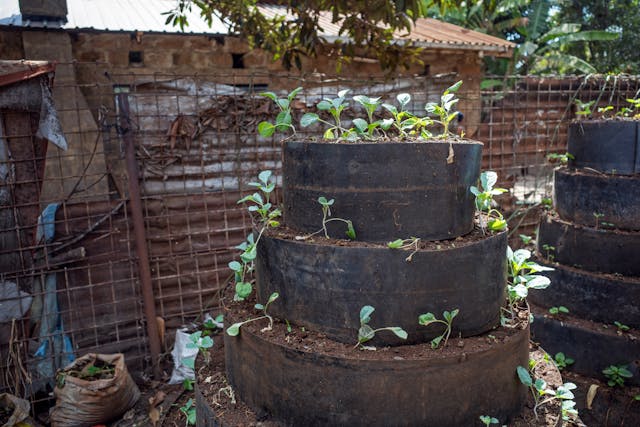
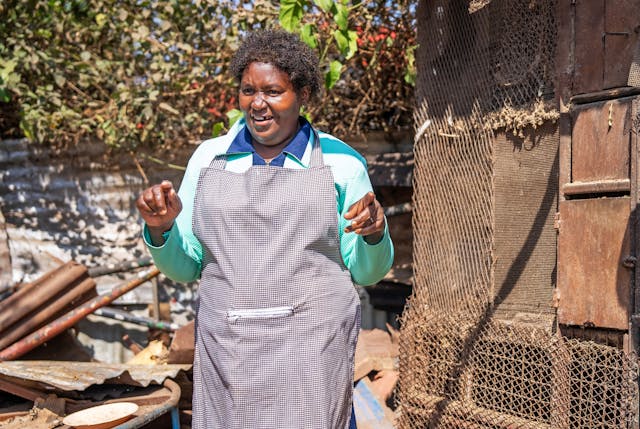
Adapting to Climate Change
Ruth Wambui runs a small farm in the Murang’a region and started a small pig farm with a loan from Juhudi Kilimo. Through several loans, she has been able to expand her business.
"I’ve bought more cows, pigs, chickens, and ducks, and established a kitchen garden," she says.
Wambui’s focus on poultry is both profitable and sustainable because she uses an organic vertical farming system, enriched with manure from her ducks. This method helps reduce evaporation and runoff, making it easier to manage the crops even during dry periods. It also creates a microclimate that can help mitigate the effects of extreme weather conditions.
"I use less water than with traditional methods, and it has helped me grow my crops well even when it’s dry," she says.
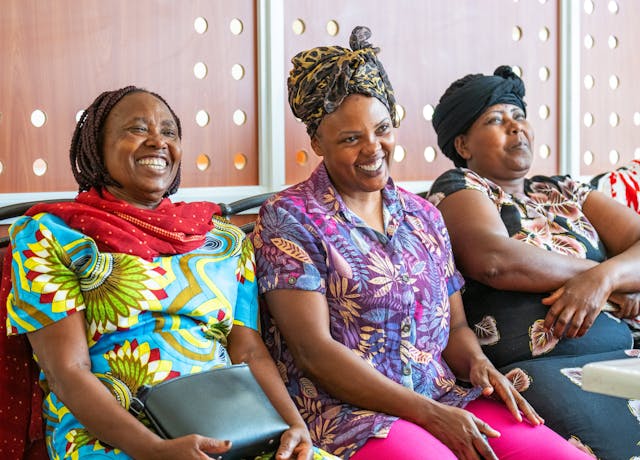
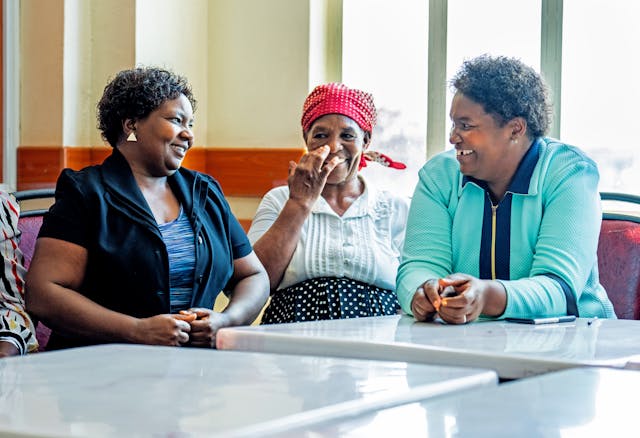
The team also visited a loan group for female farmers and small business owners in the village of Kabati. The group is based on mutual trust: each member takes out their own loan, but they guarantee each other’s repayments collectively.
"It’s a long way from Ferd’s office in Oslo, to Abler Nordic’s office in Nairobi, to one of Juhudi Kilimo’s loan groups – both geographically and from a capital flow perspective. Meeting the women in the loan group and hearing about their experiences from 15 years of joint loans was both educational and inspiring. Their stories confirm the impact reports from Abler Nordic, but they also provide a deeper insight into the results being created in practice. The trip was a good reminder that it’s very valuable to get out of the office and meet the individuals who are ultimately impacted by an investment decision," says Marte Løfman.
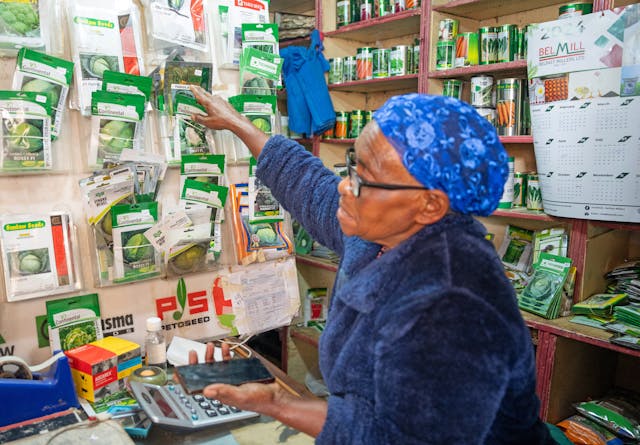
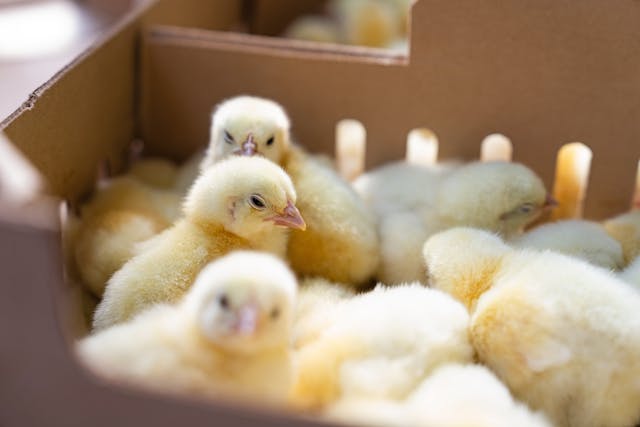
A Better Future
Virginia Wairimu lives in the Kiambu region and specializes in selling a wide range of agricultural supplies, from seeds to livestock, sourced from various suppliers across Kenya. She received her first loan from Premier Credit in 2018.
"My business has definitely grown over the years. The fast processing time for loans has been key to getting more customers. Premier Credit has also helped me stock my products. During the rainy season, when demand for certain products increases, I can keep my shop well-stocked," she says.
To improve her operations further, Virginia is exploring options to expand her distribution capacity, such as acquiring vehicles for transport and expanding her stock of agricultural tools.
"I think it will be a big boost for my business. If the weather is good and we have the right products, the customers will come," she says.
Access to the right financial services enables low-income households to create a better future for themselves and their families.
"Private investments are crucial for scaling this effort, while public funds act as the catalyst that makes it all possible," says Johan H. Andresen, who is left with many impressions after the trip to Kenya.
"Life is full of coincidences, and often it’s in these seemingly random moments—when we meet new people—that we discover ideas that can change everything," he says.
